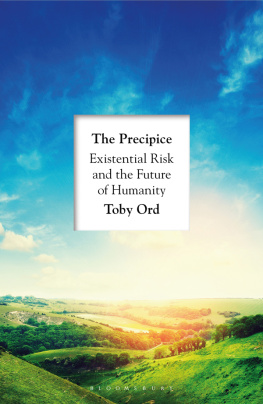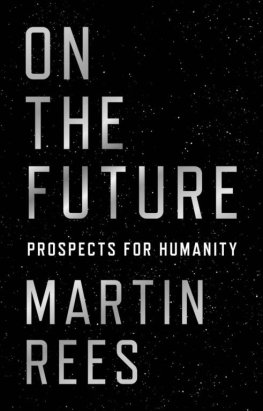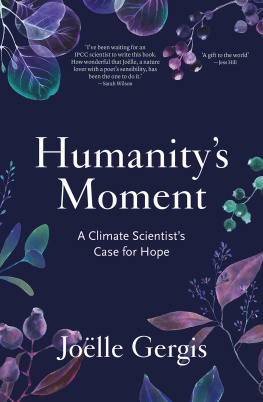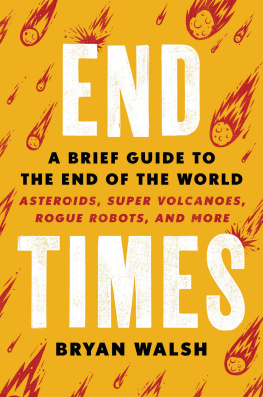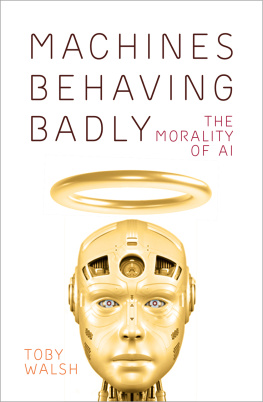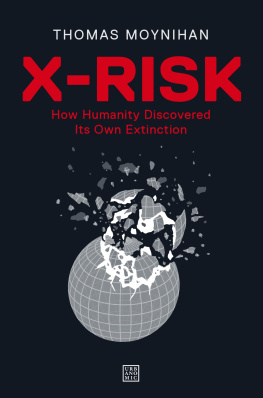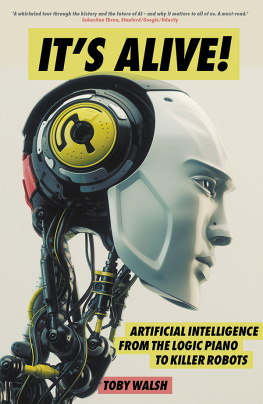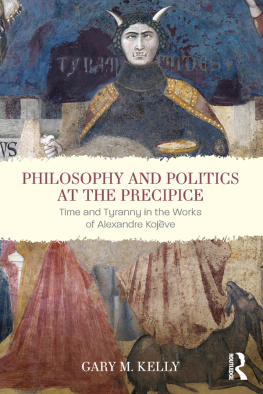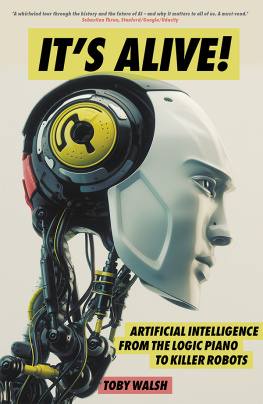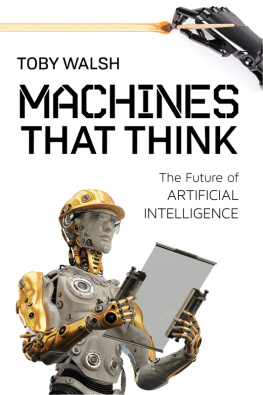
Praise for The Precipice
A story of the greatest risks to humanitys future, from the climate crisis and nuclear war to pandemics and artificial intelligence Guardian
Clearly written, approachable and concise Tremendous Evening Standard
May be the Silent Spring that the futurists have been waiting for Los Angeles Review of Books
The Precipice separates science from hype and will remain the definitive work on existential risk for a long time to come Max Tegmark, author of Life 3.0
A fascinating book, one that showcases both the knowledge of its author and his humanity Axios
Toby Ord is todays Carl Sagan. Clear and inspiring, this book leaves us hopeful for a flourishing human future Christine Peterson, co-founder of the Foresight Institute
A wake-up call to the existential threats of nuclear and biological weapons, and the urgent need for action. A must-read Angela Kane, former UN High Representative for Disarmament Affairs
A fascinating and persuasive guide to the most important topic of all: how our species will survive the risks we pose to our continued existence Stuart Russell, author of Human Compatible
A startling, well-written book Fareed Zakaria
TOBY ORD is a Senior Research Fellow in Philosophy at Oxford University. His work focuses on the big-picture questions facing humanity. What are the most important issues of our time? How can we best address them?
His earlier work explored the ethics of global poverty, leading him to make a lifelong pledge to donate 10 percent of his income to the most effective charities helping improve the world. He created a society, Giving What We Can, for people to join this mission, and together its members have pledged over 1 billion. He then broadened these ideas by co-founding the effective altruism movement in which thousands of people are using reason and evidence to help the lives of others as much as possible.
His current research is on risks that threaten human extinction or the permanent collapse of civilisation, and on how to safeguard humanity through these dangers, which he considers to be among the most pressing and neglected issues we face. Toby has advised the World Health Organization, the World Bank, the World Economic Forum, the US National Intelligence Council, and the UK Prime Ministers Office.
BLOOMSBURY PUBLISHING
Bloomsbury Publishing Plc
50 Bedford Square, London, WC1B 3DP, UK
29 Earlsfort Terrace, Dublin 2, Ireland
BLOOMSBURY, BLOOMSBURY PUBLISHING and the Diana logo are trademarks of Bloomsbury Publishing Plc
First published in Great Britain 2020
This edition published 2021
Copyright Toby Ord, 2020
Frontispiece illustration Hilary Paynter, 2020
Toby Ord has asserted his right under the Copyright, Designs and Patents Act, 1988, to be identified as Author of this work
Extract from Pale Blue Dot copyright 1994 Carl Sagan. Originally published in Pale Blue Dot by Random House. Reprinted with permission from Democritus Properties, LLC. All rights reserved this material cannot be further circulated without written permission of Democritus Properties, LLC.
Extract from A Choice of Catastrophes: The Disasters That Threaten Our World by Isaac Asimov. Copyright 1979 by Isaac Asimov. Reprinted with the permission of Simon & Schuster, Inc. All rights reserved.
All rights reserved. No part of this publication may be reproduced or transmitted in any form or by any means, electronic or mechanical, including photocopying, recording, or any information storage or retrieval system, without prior permission in writing from the publishers
Bloomsbury Publishing Plc does not have any control over, or responsibility for, any third-party websites referred to or in this book. All internet addresses given in this book were correct at the time of going to press. The author and publisher regret any inconvenience caused if addresses have changed or sites have ceased to exist, but can accept no responsibility for any such changes
A catalogue record for this book is available from the British Library
ISBN: HB: 978-1-5266-0021-9; TPB: 978-1-5266-0022-6; eBook: 978-1-5266-0019-6; PB: 978-1-5266-0023-3
2 4 6 8 10 9 7 5 3 1
Typeset by Newgen KnowledgeWorks Pvt. Ltd., Chennai, India
To find out more about our authors and books visit www.bloomsbury.com and sign up for our newsletters
To the hundred billion people before us,
who fashioned our civilisation;
To the seven billion now alive,
whose actions may determine its fate;
To the trillions to come,
whose existence lies in the balance.
CONTENTS
PART ONE
THE STAKES
If all goes well, human history is just beginning. Humanity is about two hundred thousand years old. But the Earth will remain habitable for hundreds of millions moreenough time for millions of future generations; enough to end disease, poverty and injustice forever; enough to create heights of flourishing unimaginable today. And if we could learn to reach out further into the cosmos, we could have more time yet: trillions of years, to explore billions of worlds. Such a lifespan places present-day humanity in its earliest infancy. A vast and extraordinary adulthood awaits.
Our view of this potential is easily obscured. The latest scandal draws our outrage; the latest tragedy, our sympathy. Time and space shrink. We forget the scale of the story in which we take part. But there are moments when we rememberwhen our vision shifts, and our priorities realign. We see a species precariously close to self-destruction, with a future of immense promise hanging in the balance. And which way that balance tips becomes our most urgent public concern.
This book argues that safeguarding humanitys future is the defining challenge of our time. For we stand at a crucial moment in the history of our species. Fuelled by technological progress, our power has grown so great that for the first time in humanitys long history, we have the capacity to destroy ourselvessevering our entire future and everything we could become.
Yet humanitys wisdom has grown only falteringly, if at all, and lags dangerously behind. Humanity lacks the maturity, coordination and foresight necessary to avoid making mistakes from which we could never recover. As the gap between our power and our wisdom grows, our future is subject to an ever-increasing level of risk. This situation is unsustainable. So over the next few centuries, humanity will be tested: it will either act decisively to protect itself and its longterm potential, or, in all likelihood, this will be lost forever.
To survive these challenges and secure our future, we must act now: managing the risks of today, averting those of tomorrow, and becoming the kind of society that will never pose such risks to itself again.
It is only in the last century that humanitys power to threaten its entire future became apparent. One of the most harrowing episodes has just recently come to light. On Saturday 27 October 1962 a single officer on a Soviet submarine almost started a nuclear war. His name was Valentin Savitsky. He was captain of the submarine B-59one of four submarines the Soviet Union had sent to support its military operations in Cuba. Each was armed with a secret weapon: a nuclear torpedo with explosive power comparable to the Hiroshima bomb.
Next page
